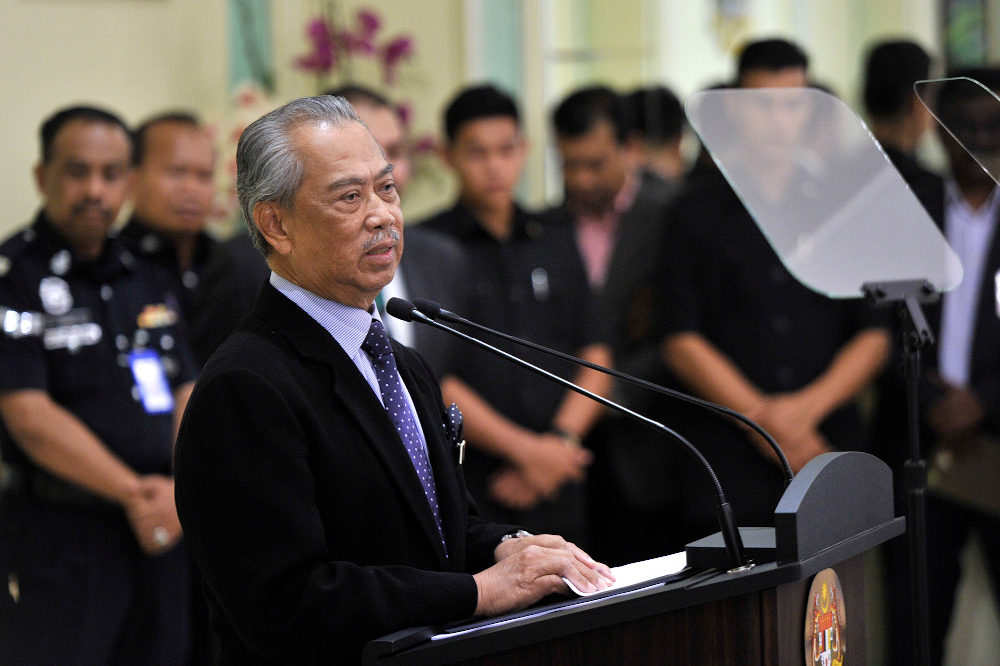COMMENTARY, March 10 — Tan Sri Muhyiddin Yassin proved he has his ear to the ground following the unveiling of his Cabinet yesterday, with appointments that have mollified anxious Malaysians.
The prime minister has put together a solid team of experienced personalities whom he thinks will be able to meet expectations and steer the country back on course.
The line-up appears to be a well-balanced and unblemished one, with each party in the current Perikatan Nasional (PN) coalition represented, yet leaves out those who have ongoing court cases against them.
Umno has 10 ministers, Parti Pribumi Bersatu Malaysia eight, PAS three and Gabungan Parti Sarawak (GPS) four. Parti Bersatu Sabah (PBS), MCA and MIC have one each. They are joined by two technocrats.
It is a line-up that for now appeals to all coalition leaders, as Muhyiddin has rightly nipped in the bud any possible dissatisfaction that is key to ensuring the coalition’s stability.
Choosing to do without a deputy prime minister is another factor that should stabilise the PN government.
If Malaysian politics has taught us anything over the past four decades, it is that instability in government has often been caused by the tensions that have arisen between a prime minister and his ambitious deputy.
Further, if one were to go by the tradition practised by Umno, the role of deputy prime minister is usually filled by the deputy president of the party that the prime minister leads.
In this regard, Muhyiddin may have felt that he doesn’t have a suitable candidate from his party Bersatu.
And so he has managed to address the two most immediate issues that might have destabilised the PN government, which is presently under fire from the Opposition, now led by his former boss and partner in Pakatan Harapan (PH), which is now crying foul over the demise of its 18-month-old government.
Malaysians appear to have accepted with an open heart the Cabinet line-up that Muhyiddin has presented, but at the same time, they are watching its next move — delivery, which is arguably the most important indicator of a good government, not just sloganeering.
The challenge for Muhyiddin now is to get cracking on alleviating the cost of living that has been skyrocketing since the PH government assumed the reins of power in 2018 and of which he was a part.
Reducing petrol and diesel prices is a good start but this will mean nothing if the PN government fails to follow through with lower prices for food and other essentials.
The PH manifesto, which led to five by-election defeats for the previous government, should be Muhyiddin’s yardstick when drawing up policies and ensuring they are delivered, for failure to do so could spell disaster for PN.
Given the situation, Muhyiddin’s new government is in for a tough challenge: deliver or risk suffering the same fate as its predecessor.
It’s not going to be a walk in the park for PN, but rather a real battle that’s expected to last right up to the next general election that’s due to take place three years from now.



















